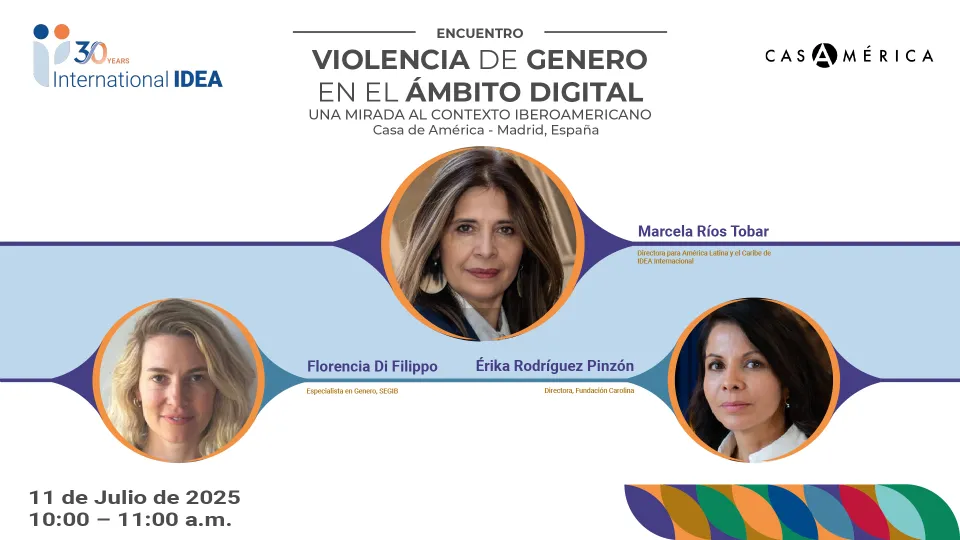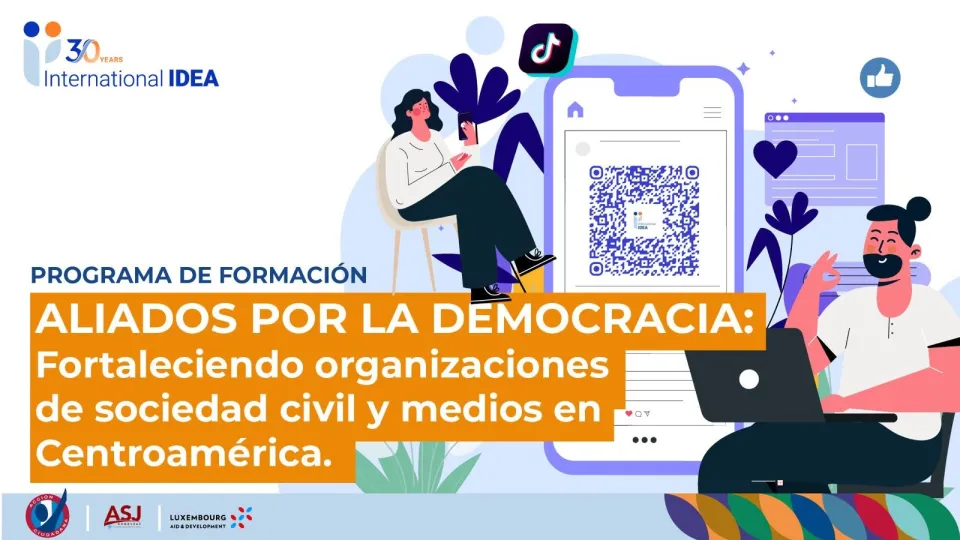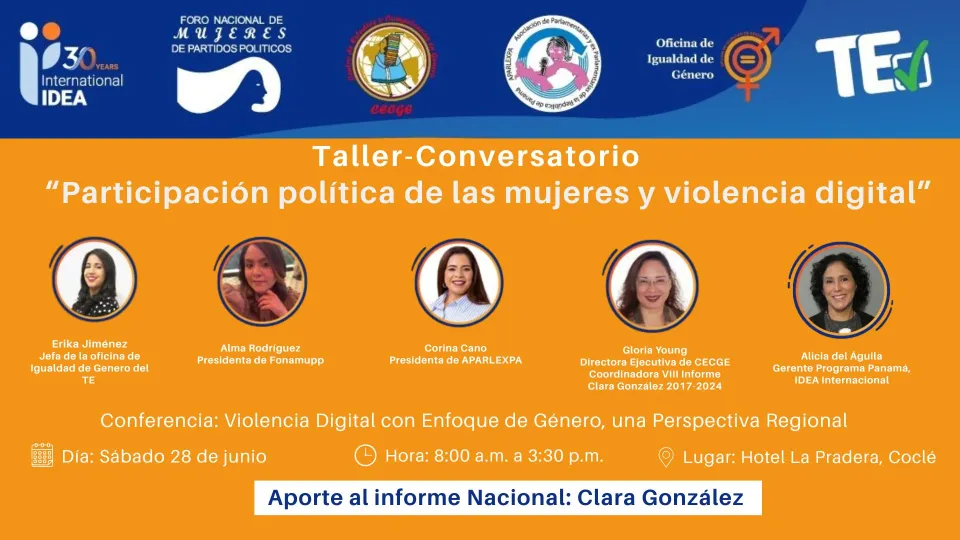As part of the operationalization of the Regional Mechanism on Support to Inclusive Constitutional Transitions (RMSICT), International IDEA is organizing – in partnership with the Government of Kenya and the Intergovernmental Authority on Development (IGAD), its 3rd Annual Retreat for African Regional Economic Communities (RECs) Special Envoys and High Officials in Nairobi, Kenya from 29 to 31 October 2024.
Búsqueda
Region
Country
Type
The International Institute for Democracy and Electoral Assistance (International IDEA) and the Electoral Institute for Sustainable Democracy in Africa (EISA) are implementing a 36-month project, titled – ‘Strengthening Pan-African Capacities for Electoral Observation and Assistance’ (SPEC), from January 2024 to December 2026.
Event will be broadcasted in English and French.
International IDEA is convening a round table to facilitate discussions on democratization in Africa, looking specifically at emerging trends in political transitions, electoral integrity and civic participation as three key areas for addressing the future of democracy in Africa. The event will also present the findings and recommendations on popular uprisings in Africa and the responses of the African Union (AU) and regional institutions to transitions emanating from such uprisings.
Fiji’s 2013 Constitution and related electoral legal framework introduced substantial changes to Fiji’s electoral system and processes, marking departure from Fiji’s previous constitutions since gaining independence in 1970. These changes brought about also new expectations, anxieties and at times, also suspicions.
NAIROBI – Following the Cabinet’s approval on 11 February 2025, today on 24 March, Kenya signed on a Host Country Agreement with the International Institute for Democracy and Electoral Assistance (International IDEA), reinforcing its commitment to democratic governance in Africa.
Women’s presence in politics is vital for shaping policy outcomes in the economic, social and cultural spheres. Despite progress over the past two decades, women remain under-represented in political leadership in Africa.
Legislatures are vital institutions at the heart of any democracy. They not only enact laws and approve budgets, but also act as representative and deliberative assemblies, and as bodies that scrutinize and oversee the actions of the executive. In order to perform these functions effectively, legislatures need to be organized, in terms of their internal leadership, their committee structures, and the rules by which they transact public business.
A resource tool that demonstrates the status of women's political participation in Africa.
Natural resources feature prominently in many political and economic settlement processes after conflict. When these processes include constitutional reform, it may be expected that mechanisms for natural resource governance would be included in the new constitutional framework, but often this is not the case.
As Africa navigates this super year of elections, election and information integrity and voting rights will come under pressure due to the zero-sum nature of Africa's politics.
Female politicians and young women aspiring to join politics from 47 counties have received a five-day training from the 5th Women in Political Participation (WPP) Academy on how to enhance their political leadership skills, promote inclusivity in political participation and inspire young women to join politics.
The informal and formal barriers to women’s political decision-making still exist, six years before the expiration of the Sustainable Development Goals (SDGs). Amongst the informal factors we still witness, culture, tradition and religion are being used to water down women’s agency in meaningful participation in political decision-making. This Women’s Day should be a time to reflect on how women influenced some milestone political decisions.
The recently concluded fifth Women Political Participation (WPP) Academy by the Forum for Africa Women Educationalists (FAWE) was a residential five-day training. It targeted women who hold political positions in Kenya’s government, women who vied in the 2022 Kenyan general election, young women aspiring to join politics whose age bracket is between 18 to 35 years, and student leaders. The participants were drawn from the 47 counties within Kenya.
The Gambia Press Union (GPU) leadership is in Nairobi this week on a learning visit to the Kenya Union of Journalists (KUJ) and affiliates and allied media organisations.
Electoral integrity in Kenya has historically been shaped by constitutional amendments, political intrigues between politicians and political parties, and a culture of disputed presidential election results.
Electoral management in Kenya has undergone many changes since the establishment of the first electoral commission in 1963, through the Kenya Independence Order in Council. The country has also experienced a series of changes in its political system.
The Forum for African Women Educationalists (FAWE), one of the seven partners within the Women In Political Participation (WPP) Project, recently convened a strategic 2-day gender-responsive training for select Kenyan journalists, editors and social media influencers drawn from various Kenya television, print media and radio stations.
Local governance comprises a set of institutions, mechanisms and processes through which citizens and their groups can articulate their interests and needs and mediate their differences. The participation of citizens in governance is one of the underlying components of democracy. Engaging citizens in the act of governance engenders transparency, improves accountability and public resource management and brings about good policy outcomes, development and the social well-being of citizens.
During a crisis such as a public emergency, the effectiveness of parliaments should be assessed by considering their ability to activate in a timely manner the necessary disaster management legislative framework, and to provide oversight to ensure that such legislation is applied by the executive in a necessary, non-discriminatory and proportional way.


